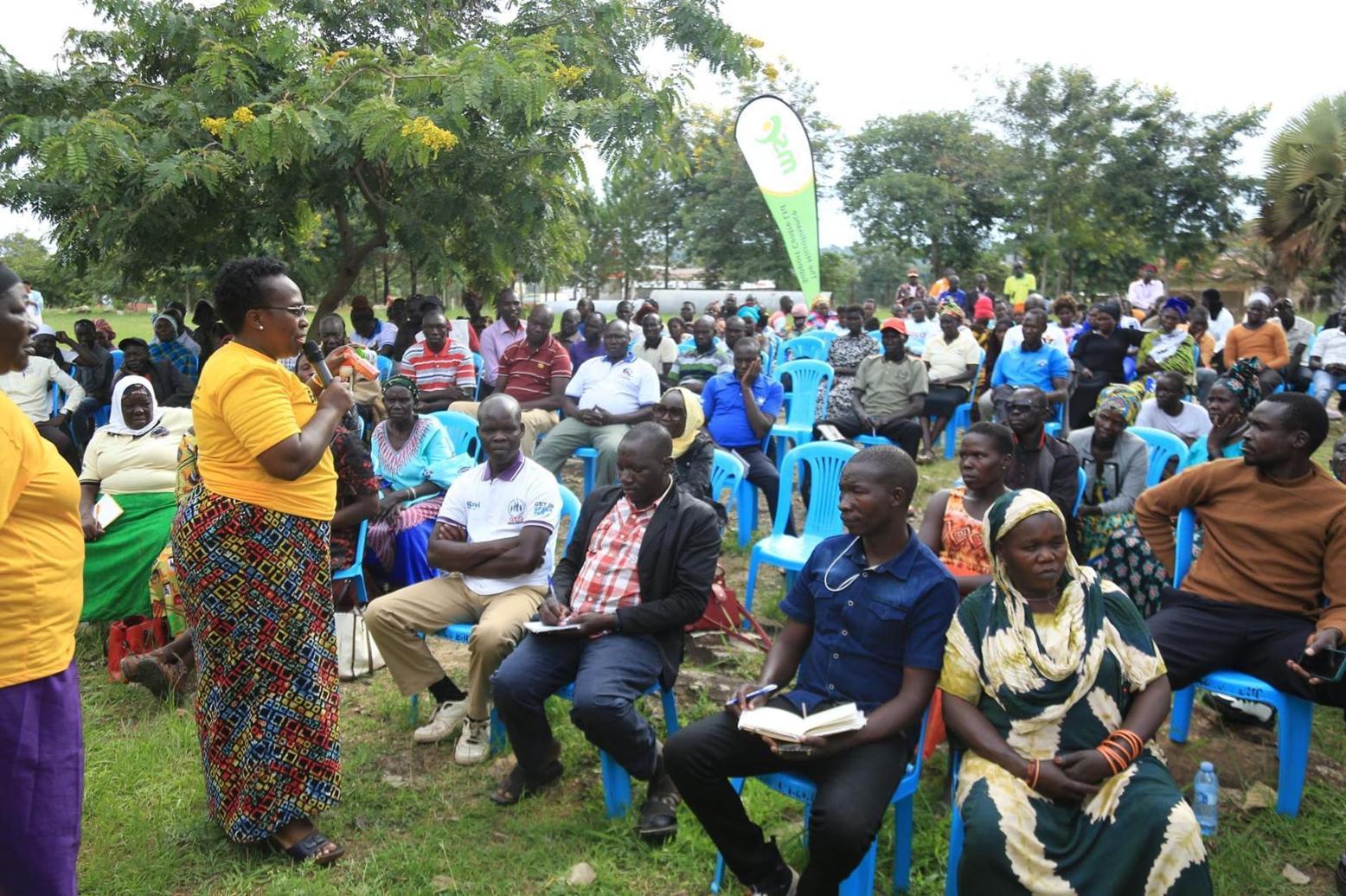Africa-Press – Uganda. In a strategic move led by the Microfinance Support Centre (MSC), model Sacco representatives from various regions across Uganda have called on Emyooga Saccos in the West Nile Sub-Region to leverage their unique geographical advantage to access and dominate cross-border markets.
Strategically located near the borders of the Democratic Republic of Congo (DRC) and South Sudan, many opportunities remain untapped.
The call was made during a peer-to-peer learning exchange program, where representatives from model Saccos in Mbarara, Serere, Mbale, Masaka, Kabarole, and Kyenjojo visited struggling Emyooga Saccos in Vurra, Maracha, and Koboko districts.
Unlike past benchmarking approaches where struggling Saccos would visit established ones, this new model sees experienced Sacco leaders going to the grassroots to offer direct support, mentorship, and practical advice.
During the interactive and insightful sessions, facilitators focused on key pillars of Sacco success mindset change, record keeping, loan management and recovery, governance and most critically, the potential of cross-border trade due to West Nile’s strategic location.
Immaculate Tumuhimbise, the chairperson of Mbarara City South Women Entrepreneur Sacco, one of the facilitators, strongly emphasized the untapped economic potential within the region, urging Sacco members to make use of the abundant natural resources and their location near international borders.
“West Nile Sub-Region is a very well endowed society that has so many resources that are readily available. First of all, you have big chunks of land, secondly you have a big production of mangos, you also have fish and also produce a lot of honey. With those resources alone, you can make a lot of money without necessarily putting in a lot of capital,” she said.
Tumuhimbise called for a focus on value addition to existing resources to meet the demand in DRC and South Sudan markets.
“Mangoes can be transformed into juice to earn an income. Mangoes can be converted into some soft drink that can be packaged and sold to the neighboring district and neighboring countries,” she added.
She further explained how the border location gives West Nile a competitive edge in trade and market access, including the advantage of proximity to refugee settlements where economic activity is often driven by foreign remittances.
“I was very impressed by finding this sub-region neighboring DRC Congo and also neighboring Southern Sudan. That is a very powerful resource, also that we talk about the markets. There is a viable market across the border, and at the same time, the resource and the market they have is there is a powerful refugee camp in this region, and in most cases, refugees who have foreign currencies. They have their relatives abroad who send their money for survival and in most cases they have the money. So these are powerful resources that Emyooga Saccos in this sub-region of West Nile can tap into,” Tumuhimbise explained.
Beyond market opportunities, Sacco leaders also called for internal strengthening of Sacco systems, particularly around savings and member mobilization.
Jackson Wamala Zaake, Chairperson of Kawempe Boda Boda Sacco, stressed the importance of a saving culture among members.
“A Sacco cannot grow when members don’t save,” he said, encouraging West Nile Sacco leaders to mobilize their members to buy shares, citing it as a key factor that contributed to the growth of their own Sacco.
Grace Aceng, representing the Sebei Region Tailors’ Emyooga Sacco, echoed the message on savings, describing it as the backbone of Sacco growth.
“Saving doesn’t require you to have a lot of money. You can begin with only shs 2,000 and don’t save what you are going to use, but save the remaining money after you have addressed the necessities,” she noted.
The learning initiative was welcomed by local leadership. Monica Koliba Koteevu, the Deputy RDC of Maracha District, hailed MSC for the inclusive learning strategy and expressed commitment to ensuring the lessons are put into practice.
“Learning is continuous and every time we must accept to learn and when we learn, we internalise and then do action. Having taught us, we shall now make whatever we’ve learnt into practice,” she said, expressing optimism about the future transformation of Saccos in the sub-region.
Lucy Akulia, Chairperson of the Market Vendor Sacco in Koboko, appreciated the initiative, noting that it opened their eyes to new possibilities and inspired fresh motivation among members.
“With this learning from our colleagues whom we do the same job, we are excited and much appreciative to that fact that they have opened our eyes. We thank MSC for being thoughtful and we now embark on the journey to success having acquired the knowledge,” she added.
For More News And Analysis About Uganda Follow Africa-Press






